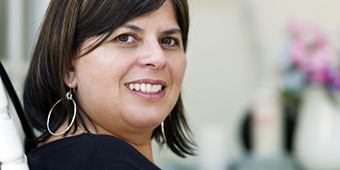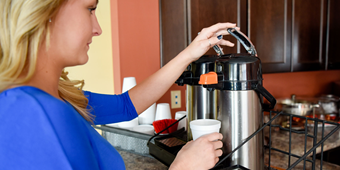Endometriosis – How She Needs Your Help

Find Your Perfect Match
Answer a few questions and we'll provide you with a list of primary care providers that best fit your needs.
Your loved one has endometriosis and you’re worried about her. You see she is miserable every month during her period. Her symptoms have caused her to miss school, work, activities and social engagements. She is more and more isolated and may be depressed. She also worries about being misunderstood, aware that others may think she is just using excuses.
For a young woman, the scenario can be especially grim. Taking seven to 10 years to finally receive a diagnosis of endometriosis is too common, and she can feel hopeless in the meantime. Then she has to accept the fact that there is no immediate cure, plus the other health problems that go hand in hand with the diagnosis. So, endometriosis is a lot to deal with emotionally. How can you help? What does she need you to know about supporting her?
1. Listen Well
Don't ever tune out when she says she is in pain. Before you say "I know what you're going through," wait and hear her to the end. You may want to compare your tough situation with hers, but be sensitive: consider whether it will be truly helpful and encouraging. Remember, she isn't just dealing with physical symptoms. Emotionally, she is trying to handle the long-term prospects of a disease that may also cause problems like infertility or pregnancy loss.
2. Learn All You Can
Become a student of endometriosis – its symptoms, treatment strategies and other health concerns. If she is your partner, take the time to learn about what intimacy can look like when sex with endometriosis is painful and causes anxiety for her. It will mean a lot to her if you are sensitive and informed when the issue comes up.
3. Stand Up For Her
As an invisible disease, it can be hard for others to understand or sympathize. She may be dismissed or talked about behind her back. She needs loved ones to stand up for her, to explain her absences, to be her advocate. If you're a friend, this may mean speaking up when someone mentions her in school or another activity. If you're a family member or her partner, she may need you to help explain the extent of her symptoms to the doctor and walk with her as she seeks the right treatment plan.
4. Be Flexible and Helpful

If you made plans but your loved one is suffering unexpectedly, be willing to adjust; try something less stressful or move the gathering to her house. She probably hates that she is causing issues, but your understanding assures her that you care deeply. Plan to be both flexible and helpful. If you're a friend from school, be prepared to get in touch with her when you notice that she's absent. Help her out by taking notes for her and keeping track of what she is missing out on.
5. Pay Attention
Loving someone with an incurable chronic disease means getting better at the art of noticing and communicating. Ask her questions like "What level is your pain at today?" and "What can I do to help?" Look out for signs of depression: loss of appetite, sleeplessness and lack of interest in the things she used to love. If you see these, make sure she works with her doctor to help. Also, pay attention to when she is having a good day; be quick to seize the moment and squeeze in some fun when you can!
6. Speak Hope
Store up her past moments of courage so that you can remind her of that strength in future pain. You know that she is strong, that she can live well even with a chronic disease. Encourage her to seek the treatment advances that can help suppress the disease and the pain it causes. In the low times that she needs to hear it most, be a calm and steady voice that says, "We're going to figure out what you need to manage this. I'm here for you. You are brave and strong." She's got this and you know it — keep on telling her and being a voice of hope.
Find Your Perfect Match
Answer a few questions and we'll provide you with a list of primary care providers that best fit your needs.
Source: Endometriosis.org; Endometriosis Foundation of America; Center for Young Women's Health




